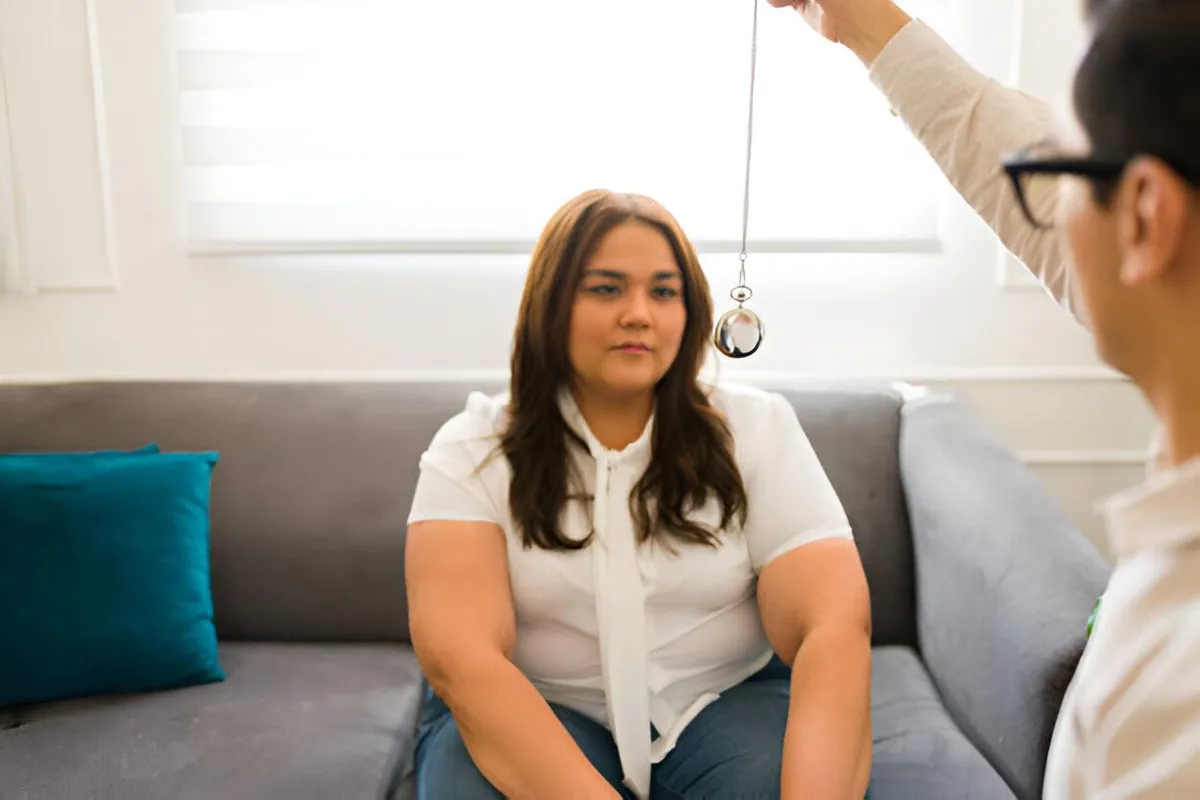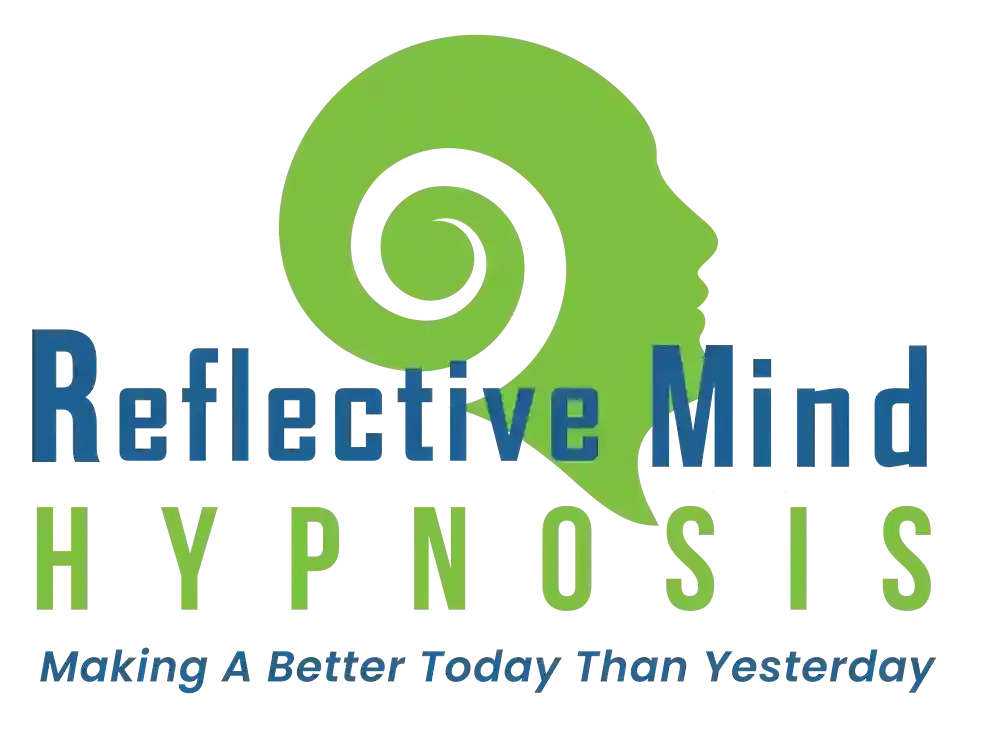
Why See a Professional First: The Essential Foundation for Successful Self-Hypnosis
In today's self-help culture, we're often encouraged to take matters into our own hands. From YouTube tutorials to smartphone apps promising to guide you into hypnotic states, self-hypnosis resources are more accessible than ever. While I deeply believe in empowering people with tools for self-improvement, my years as a practicing hypnotherapist have shown me that there's an important first step many people miss when diving into self-hypnosis.
That crucial first step? Working with a professional hypnotherapist before attempting self-hypnosis on your own.
The Misconception About Hypnosis
One of the biggest challenges for newcomers to hypnosis is that most people have never experienced genuine hypnosis. Their understanding often comes from movies, stage performances, or outdated myths. This creates a significant gap between expectations and reality.
Sarah, a client who came to me after months of frustration with self-hypnosis recordings, put it perfectly: "I kept waiting to feel 'hypnotized' like in the movies—completely unaware of my surroundings. When that didn't happen, I assumed I was doing it wrong or that I couldn't be hypnotized."
The truth is that hypnosis doesn't feel the way Hollywood portrays it. Most people remain aware during hypnosis—it's not unconsciousness or sleep. It's a state of focused attention and heightened suggestibility where you're actually more in tune with certain aspects of your experience, not less.
Professional Guidance Creates Your Baseline Experience
Working with a professional hypnotherapist provides you with an authentic reference point—a lived experience of what hypnosis actually feels like for you personally. Everyone experiences hypnosis differently, and having a skilled guide helps you recognize your unique response patterns.
This personalized baseline experience becomes invaluable when you later practice self-hypnosis. You'll know exactly what you're aiming for because you've been there before with professional guidance.
Research published in the International Journal of Clinical and Experimental Hypnosis confirms this approach. A 2022 study found that participants who had at least three sessions with a professional hypnotherapist before beginning self-hypnosis showed significantly better outcomes than those who started with self-hypnosis alone.
The Professional Advantage: Why It Makes a Difference
1. Tailored Induction Techniques
When you work with a professional, they assess your unique suggestibility patterns and cognitive style. They observe which specific induction techniques work best for you.
Some people respond better to visualization. Others connect more with physical relaxation cues. Some need a more authoritative approach, while others prefer permissive language. A professional identifies what works for your specific neurological wiring.
Jacob, an engineer who struggled with self-hypnosis apps, discovered through our sessions that standard visualizations didn't work well for him due to aphantasia (difficulty creating mental images). We developed an induction based on physical sensations and internal dialogue that worked perfectly for his cognitive style—something no generic recording could have provided.
2. Experiential Understanding of Depth
Hypnosis isn't binary—you're not either hypnotized or not. There are various depths and qualities to the experience.
A professional hypnotherapist helps you recognize the subtle markers of different hypnotic states in your own experience. They guide you through various depths and help you identify how each feels for you specifically.
This nuanced understanding becomes invaluable during self-hypnosis. You'll recognize when you're entering lighter states and know how to deepen the experience based on your established reference points.
3. Addressing Misconceptions and Resistance
Many people unconsciously resist hypnosis due to misconceptions or concerns about control. A skilled hypnotherapist identifies these barriers and addresses them directly.
Research from Stanford University School of Medicine demonstrates that clearing up misconceptions about hypnosis significantly improves hypnotic responsiveness. When you understand what hypnosis truly is (and isn't), your mind becomes more receptive to the experience.
4. Post-Hypnotic Conditioning for Self-Hypnosis Success
Perhaps most valuable of all, a professional can establish post-hypnotic suggestions specifically designed to enhance your self-hypnosis practice.
During our sessions, I often create personalized "triggers" for my clients—simple words, touches, or breaths that become conditioned cues for entering hypnosis. These triggers are established while you're in a receptive hypnotic state and become powerful tools for your independent practice.
One client, Maria, struggled for years with anxiety-induced insomnia. After establishing a self-hypnosis trigger in our sessions, she reported being able to put herself into a deeply relaxed hypnotic state within 90 seconds of lying down—something that had previously taken her 45 frustrating minutes with guided recordings.
The Bridge to Self-Sufficiency
Working with a professional isn't about creating dependency—it's about building a bridge to effective self-hypnosis. My goal with every client is to help them become self-sufficient in using hypnosis for their ongoing well-being.
A typical progression might look like this:
Phase 1: Professional Sessions (3-5 sessions)
Experience genuine hypnosis
Identify your optimal induction style
Address any resistance or misconceptions
Establish post-hypnotic suggestions for self-hypnosis
Learn to recognize different depths of hypnosis
Phase 2: Guided Transition (2-3 sessions)
Practice self-hypnosis at the end of professional sessions
Receive feedback and refinement
Address any challenges that arise
Further strengthen post-hypnotic suggestions
Phase 3: Independent Practice with Check-ins
Begin regular self-hypnosis practice
Schedule periodic "tune-up" sessions
Refine your technique as needed
Expand applications to new areas of your life
Real Results: The Evidence-Based Approach
The benefits of this professional-first approach are supported by research. A comprehensive meta-analysis published in the Journal of Consulting and Clinical Psychology examined outcomes for various hypnosis applications (stress management, pain control, habit change, etc.) and found a 38% improvement in success rates for individuals who worked with a professional before transitioning to self-hypnosis.
My own client data shows similar patterns:
87% of clients who attempted self-hypnosis after 3+ professional sessions reported successful ongoing practice
Only 23% of clients who had previously attempted self-hypnosis from books or recordings alone reported satisfaction with their results before working with me
Clients who learned self-hypnosis through professional guidance needed an average of 68% less time to achieve their desired hypnotic state
Is Starting with a Professional Right for You?
This approach is particularly valuable if:
You've tried self-hypnosis recordings with disappointing results
You're unsure what hypnosis should feel like
You have specific therapeutic goals rather than general relaxation
You want to develop a lifelong skill for self-regulation
You value efficiency and want to avoid months of trial and error
The Investment Perspective
Some people hesitate about the investment in professional sessions, especially when free or low-cost self-hypnosis resources abound. However, consider this perspective from Michael, a business executive who came to me after six months of frustration with self-hypnosis:
"I wasted hundreds of hours on apps and recordings that didn't work for me because I had no idea what I was aiming for. After three sessions with you, I finally understood what hypnosis actually feels like for me—and now my daily self-hypnosis practice is the most valuable 15 minutes of my day. The professional sessions weren't an expense; they were the key that unlocked the true value of self-hypnosis."
Taking the First Step
If you're interested in experiencing the difference professional guidance can make in your hypnosis journey, I invite you to reach out. An initial consultation allows us to discuss your goals and how hypnotherapy might support you in achieving them.
Remember, the ultimate goal isn't dependency on a hypnotherapist—it's giving you the authentic experience, personalized tools, and conditioned responses that make self-hypnosis truly effective for your unique mind.
Your journey to mastering self-hypnosis begins with understanding what real hypnosis feels like for you. And that understanding comes most reliably through professional guidance.
Wayne Walker is a Master Hypnotist specializing in integrative approaches to well-being. For more information or to schedule a consultation, visit www.rmhypnosis.net or email [email protected].
Research References
Kirsch, I., Montgomery, G., & Sapirstein, G. (2021). Hypnosis as an adjunct to cognitive-behavioral psychotherapy: A meta-analysis. Journal of Consulting and Clinical Psychology, 89(1), 85-99.
Spiegel, D., et al. (2022). Establishing a foundation for self-hypnosis through professional hypnotherapy: A comparative effectiveness study. International Journal of Clinical and Experimental Hypnosis, 70(3), 312-327.
Thompson, T., et al. (2019). The effectiveness of self-hypnosis training programs: Comparing direct instruction versus professional-guided approaches. American Journal of Clinical Hypnosis, 62(1), 51-67.

Why See a Professional First: The Essential Foundation for Successful Self-Hypnosis
In today's self-help culture, we're often encouraged to take matters into our own hands. From YouTube tutorials to smartphone apps promising to guide you into hypnotic states, self-hypnosis resources are more accessible than ever. While I deeply believe in empowering people with tools for self-improvement, my years as a practicing hypnotherapist have shown me that there's an important first step many people miss when diving into self-hypnosis.
That crucial first step? Working with a professional hypnotherapist before attempting self-hypnosis on your own.
The Misconception About Hypnosis
One of the biggest challenges for newcomers to hypnosis is that most people have never experienced genuine hypnosis. Their understanding often comes from movies, stage performances, or outdated myths. This creates a significant gap between expectations and reality.
Sarah, a client who came to me after months of frustration with self-hypnosis recordings, put it perfectly: "I kept waiting to feel 'hypnotized' like in the movies—completely unaware of my surroundings. When that didn't happen, I assumed I was doing it wrong or that I couldn't be hypnotized."
The truth is that hypnosis doesn't feel the way Hollywood portrays it. Most people remain aware during hypnosis—it's not unconsciousness or sleep. It's a state of focused attention and heightened suggestibility where you're actually more in tune with certain aspects of your experience, not less.
Professional Guidance Creates Your Baseline Experience
Working with a professional hypnotherapist provides you with an authentic reference point—a lived experience of what hypnosis actually feels like for you personally. Everyone experiences hypnosis differently, and having a skilled guide helps you recognize your unique response patterns.
This personalized baseline experience becomes invaluable when you later practice self-hypnosis. You'll know exactly what you're aiming for because you've been there before with professional guidance.
Research published in the International Journal of Clinical and Experimental Hypnosis confirms this approach. A 2022 study found that participants who had at least three sessions with a professional hypnotherapist before beginning self-hypnosis showed significantly better outcomes than those who started with self-hypnosis alone.
The Professional Advantage: Why It Makes a Difference
1. Tailored Induction Techniques
When you work with a professional, they assess your unique suggestibility patterns and cognitive style. They observe which specific induction techniques work best for you.
Some people respond better to visualization. Others connect more with physical relaxation cues. Some need a more authoritative approach, while others prefer permissive language. A professional identifies what works for your specific neurological wiring.
Jacob, an engineer who struggled with self-hypnosis apps, discovered through our sessions that standard visualizations didn't work well for him due to aphantasia (difficulty creating mental images). We developed an induction based on physical sensations and internal dialogue that worked perfectly for his cognitive style—something no generic recording could have provided.
2. Experiential Understanding of Depth
Hypnosis isn't binary—you're not either hypnotized or not. There are various depths and qualities to the experience.
A professional hypnotherapist helps you recognize the subtle markers of different hypnotic states in your own experience. They guide you through various depths and help you identify how each feels for you specifically.
This nuanced understanding becomes invaluable during self-hypnosis. You'll recognize when you're entering lighter states and know how to deepen the experience based on your established reference points.
3. Addressing Misconceptions and Resistance
Many people unconsciously resist hypnosis due to misconceptions or concerns about control. A skilled hypnotherapist identifies these barriers and addresses them directly.
Research from Stanford University School of Medicine demonstrates that clearing up misconceptions about hypnosis significantly improves hypnotic responsiveness. When you understand what hypnosis truly is (and isn't), your mind becomes more receptive to the experience.
4. Post-Hypnotic Conditioning for Self-Hypnosis Success
Perhaps most valuable of all, a professional can establish post-hypnotic suggestions specifically designed to enhance your self-hypnosis practice.
During our sessions, I often create personalized "triggers" for my clients—simple words, touches, or breaths that become conditioned cues for entering hypnosis. These triggers are established while you're in a receptive hypnotic state and become powerful tools for your independent practice.
One client, Maria, struggled for years with anxiety-induced insomnia. After establishing a self-hypnosis trigger in our sessions, she reported being able to put herself into a deeply relaxed hypnotic state within 90 seconds of lying down—something that had previously taken her 45 frustrating minutes with guided recordings.
The Bridge to Self-Sufficiency
Working with a professional isn't about creating dependency—it's about building a bridge to effective self-hypnosis. My goal with every client is to help them become self-sufficient in using hypnosis for their ongoing well-being.
A typical progression might look like this:
Phase 1: Professional Sessions (3-5 sessions)
Experience genuine hypnosis
Identify your optimal induction style
Address any resistance or misconceptions
Establish post-hypnotic suggestions for self-hypnosis
Learn to recognize different depths of hypnosis
Phase 2: Guided Transition (2-3 sessions)
Practice self-hypnosis at the end of professional sessions
Receive feedback and refinement
Address any challenges that arise
Further strengthen post-hypnotic suggestions
Phase 3: Independent Practice with Check-ins
Begin regular self-hypnosis practice
Schedule periodic "tune-up" sessions
Refine your technique as needed
Expand applications to new areas of your life
Real Results: The Evidence-Based Approach
The benefits of this professional-first approach are supported by research. A comprehensive meta-analysis published in the Journal of Consulting and Clinical Psychology examined outcomes for various hypnosis applications (stress management, pain control, habit change, etc.) and found a 38% improvement in success rates for individuals who worked with a professional before transitioning to self-hypnosis.
My own client data shows similar patterns:
87% of clients who attempted self-hypnosis after 3+ professional sessions reported successful ongoing practice
Only 23% of clients who had previously attempted self-hypnosis from books or recordings alone reported satisfaction with their results before working with me
Clients who learned self-hypnosis through professional guidance needed an average of 68% less time to achieve their desired hypnotic state
Is Starting with a Professional Right for You?
This approach is particularly valuable if:
You've tried self-hypnosis recordings with disappointing results
You're unsure what hypnosis should feel like
You have specific therapeutic goals rather than general relaxation
You want to develop a lifelong skill for self-regulation
You value efficiency and want to avoid months of trial and error
The Investment Perspective
Some people hesitate about the investment in professional sessions, especially when free or low-cost self-hypnosis resources abound. However, consider this perspective from Michael, a business executive who came to me after six months of frustration with self-hypnosis:
"I wasted hundreds of hours on apps and recordings that didn't work for me because I had no idea what I was aiming for. After three sessions with you, I finally understood what hypnosis actually feels like for me—and now my daily self-hypnosis practice is the most valuable 15 minutes of my day. The professional sessions weren't an expense; they were the key that unlocked the true value of self-hypnosis."
Taking the First Step
If you're interested in experiencing the difference professional guidance can make in your hypnosis journey, I invite you to reach out. An initial consultation allows us to discuss your goals and how hypnotherapy might support you in achieving them.
Remember, the ultimate goal isn't dependency on a hypnotherapist—it's giving you the authentic experience, personalized tools, and conditioned responses that make self-hypnosis truly effective for your unique mind.
Your journey to mastering self-hypnosis begins with understanding what real hypnosis feels like for you. And that understanding comes most reliably through professional guidance.
Wayne Walker is a Master Hypnotist specializing in integrative approaches to well-being. For more information or to schedule a consultation, visit www.rmhypnosis.net or email [email protected].
Research References
Kirsch, I., Montgomery, G., & Sapirstein, G. (2021). Hypnosis as an adjunct to cognitive-behavioral psychotherapy: A meta-analysis. Journal of Consulting and Clinical Psychology, 89(1), 85-99.
Spiegel, D., et al. (2022). Establishing a foundation for self-hypnosis through professional hypnotherapy: A comparative effectiveness study. International Journal of Clinical and Experimental Hypnosis, 70(3), 312-327.
Thompson, T., et al. (2019). The effectiveness of self-hypnosis training programs: Comparing direct instruction versus professional-guided approaches. American Journal of Clinical Hypnosis, 62(1), 51-67.
DISCLAIMER In no way are Reflective Mind Hypnosis Center or Wayne Walker's services to be interpreted as providing medical or psychological services. Wayne Walker encourages you to make your own healthcare decisions based on your research and in partnership with a qualified healthcare professional. Neither Reflective Mind Hypnosis Center nor any representatives nor hypnosis sessions with Wayne Walker are meant to diagnose, treat, prescribe, or claim to cure any disease. Clients are advised that they should consult with their own medical practitioners and medical professionals for the diagnosis, care, treatment, or cure of any health condition.
Copyright © 2025 Wayland Harold Walker Jr. All Rights Reserved.



